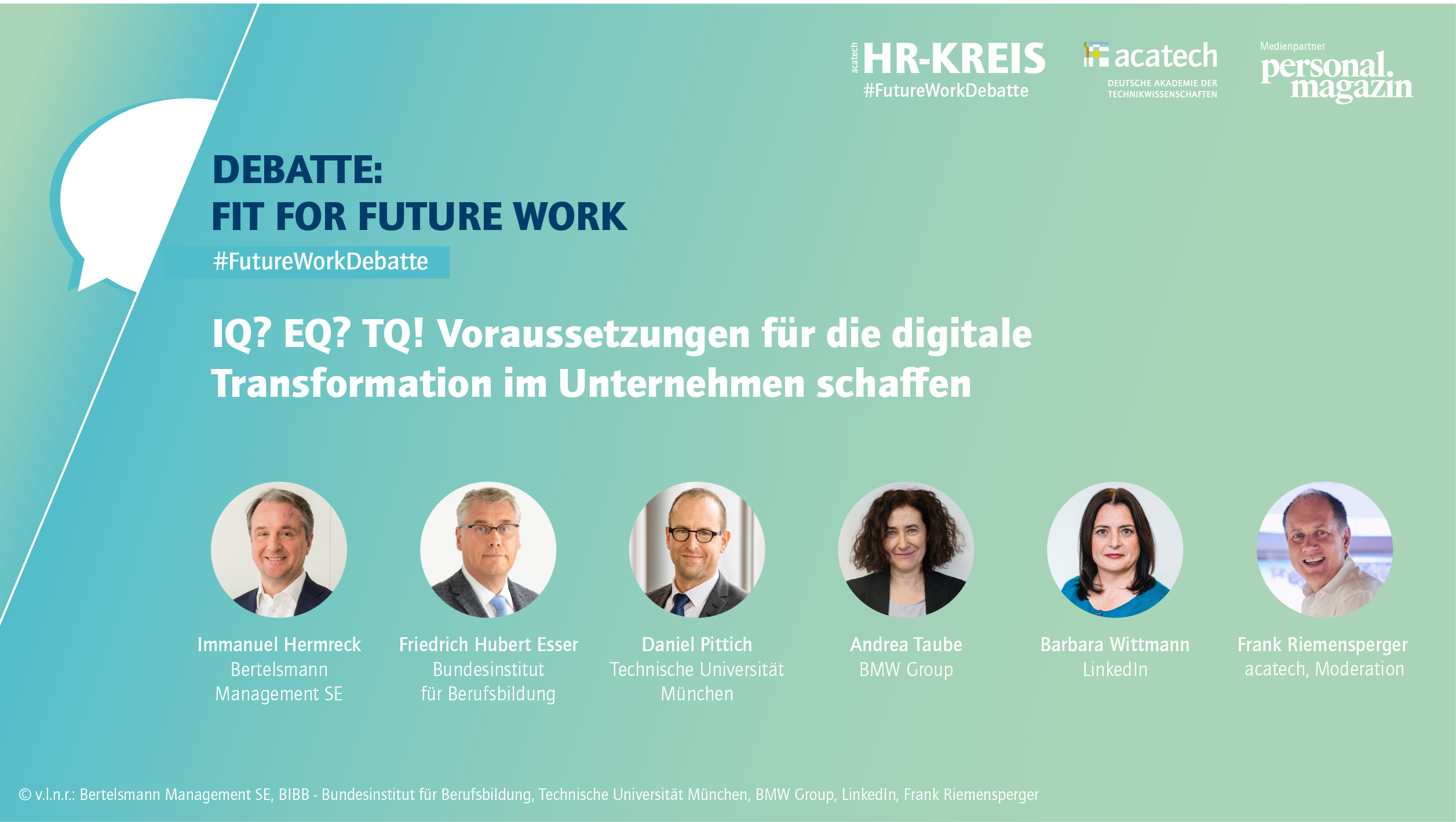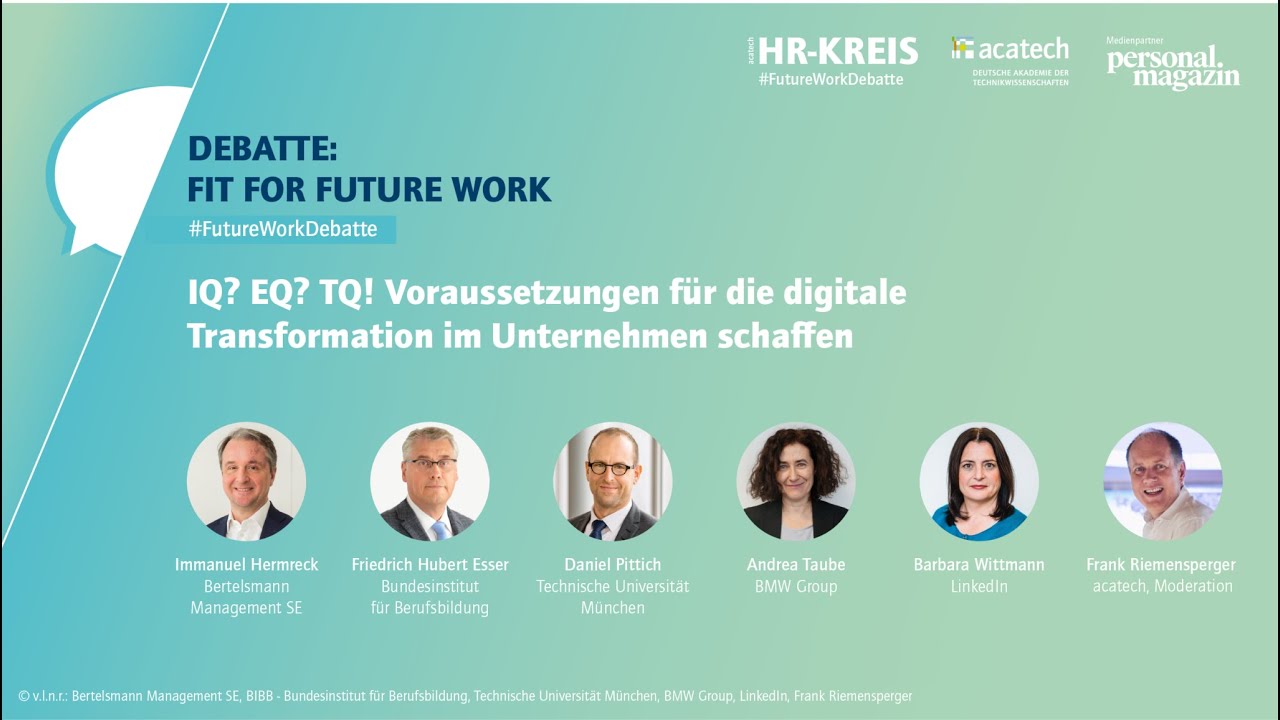#FutureWorkDebatte: IQ? EQ? TQ!

Munich, 04 May 2023
For almost a year now, acatech’s Human Resources Working Group has been organizing the #FutureWorkDebatte, a series of virtual talks on the future of work. The topic of debate on 26 April was the acronym TQ. TQ stands for Technology Quotient, a measure of a person’s or entity’s skills relating to current technologies as well as their adaptability to future innovations. The consensus among the debate participants was that companies must increase investment in developing such skills in their employees.
Unlike the well-known IQ (Intelligence Quotient) and EQ (Emotional Quotient), TQ (Technology Quotient) is not fixed and is also a crucial element of a company’s competitiveness. The participants agreed that raising the TQ of employees throughout the company pays off. This means investing in employee development rather than later recruiting staff who are trained in this regard. The following people participated in the debate about effective strategies to achieve this goal: Immanuel Hermreck (Chief Human Resources Officer, Bertelsmann Management SE), Andrea Taube (Head of Training Development, Purchasing, Sales and Administration BMW Group), Barbara Wittmann (Country Manager DACH & Senior Director Talent Solutions, LinkedIn), Daniel Pittich (Professor of Technical Education, TUM) and Friedrich Hubert Esser (President, Federal Institute for Vocational Education and Training). Human Resources Working Group co-host and acatech Executive Board member Frank Riemensperger moderated.
The participants agreed that it was important to keep an open mind about technologies and digitalisation in order for employee upskilling to be a success. Low-threshold training opportunities, such as e-learning, could also boost acceptance. Very good progress is being made in this regard thanks to the increasing democratisation of such training, Barbara Wittmann pointed out. Another strand is to promote workers’ self-motivation by making them aware of the personal benefits of continuing and further training, said Immanuel Hermreck.
In addition, greater emphasis should be placed on raising TQ within the education system: acquiring the necessary skillset should be part of schooling. The goal here, according to Friedrich Hubert Esser, is the teaching of digital skills as part of the binding education standards in general education, the promotion of digital skills as key vocational qualifications in training and the acquisition of profession-specific digital skills through further training. Daniel Pittich spoke about the associated challenges. “If we want our qualified experts to be fit for the future in terms of TQ, we need a precise idea of what the skills of the future are, as well as sound approaches for developing these.”
At the end of the discussion, all were agreed that the TQ concept must always be centred on the human; ultimately, raising TQ is associated with greater social participation and better opportunities in the labour market for each and every individual.
About the debate series Fit for Future Work
Current proposals from acatech’s Human Resources Working Group are zeroing in on how a good working relationship can work and how digitalisation can go from bugbear and suspected job-killer to an opportunity for good work. In its debate series “Fit for Future Work” the Human Resources Working Group puts forward its perspectives for public discussion. The latest information and positions surrounding the debate series are available on social media:
#FutureWorkDebatte




